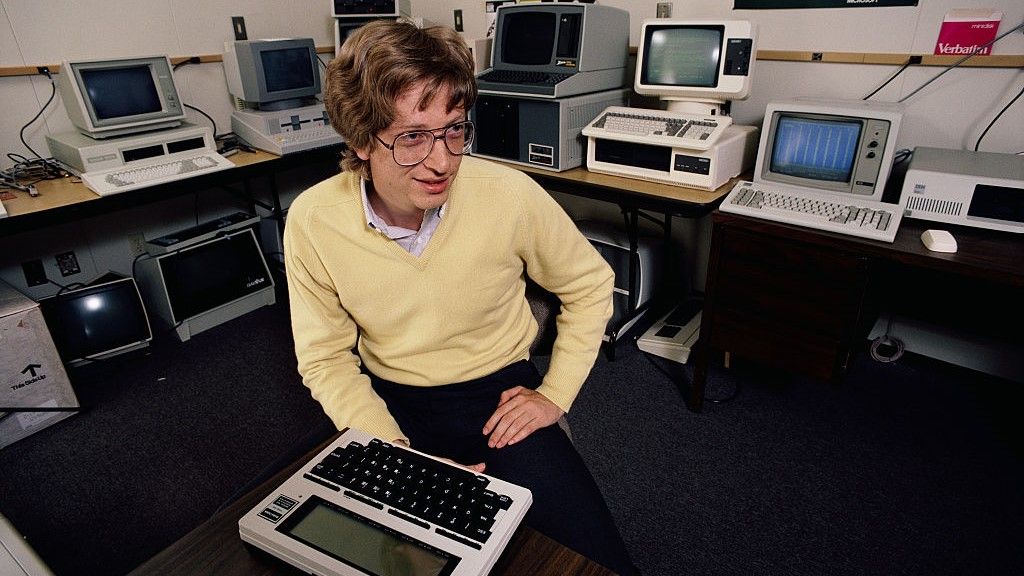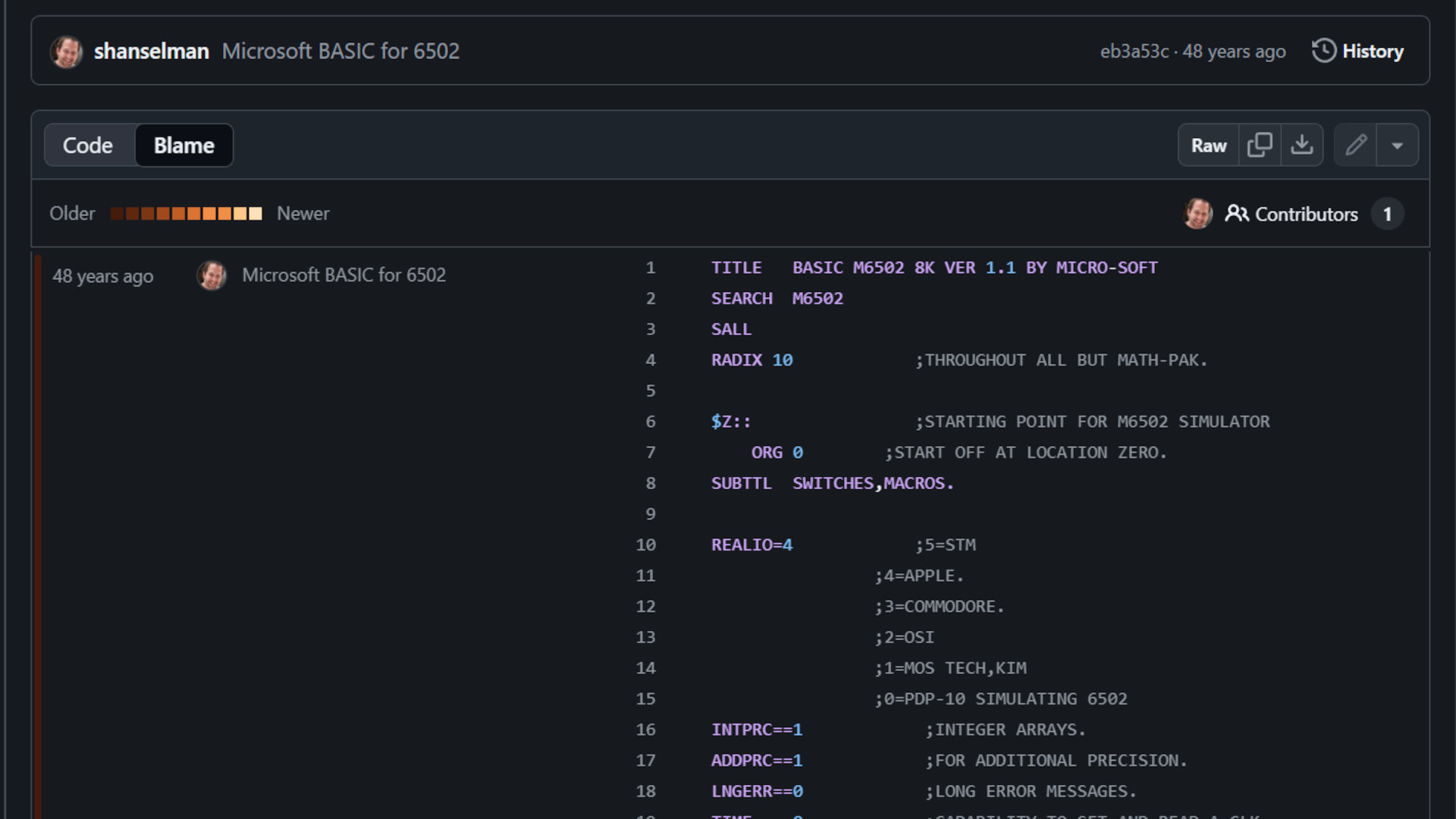
In recent years, software giant Microsoft has been releasing the source code for some of its oldest operating systems under MIT open-source licenses. Examples include MS-DOS and GW-BASIC, and now another blast from the past has been added to the collection. Somewhat surprisingly, though, this one is really old and just so happens to be a version of its first-ever software product.
Specifically, it's a port of BASIC, the OS that founders Bill Gates and Paul Allen developed for use on the Intel 8080-powered Altair 8800. As explained in a Microsoft blog, the version that's just been released on GitHub was created for computers using MOS Technology 6502 processors (via The Register).
The Intel 8080 and MOS 6502 were both 8-bit CPUs, launched in 1974 and 1975, respectively. Although the latter was less capable than the former, it was considerably cheaper, which is why Acorn Computers, Apple, Atari, Commodore, Nintendo, and many others bought it in droves to power their computers and consoles.
Such was the popularity of the 6502 that Gates and Ric Weiland wrote a port of BASIC specifically for that processor, which Commodore paid a flat license fee to use on its PET computer (then its VIC-20 and C64). It tweaked a few parts, improving the garbage collection, and that's the version of 6502 BASIC you can freely use, recode, sell, or whatever.
Naturally, given the fact that this was first created 48 years ago, the code is all in assembly, and if you're not familiar with the MOS 6502, some of it won't make much sense. Come to think of it, if you don't know assembly, none of it will make sense. Still, at least there's just under seven thousand lines of code to pick apart.

The GitHub entry also includes some short statements about the cultural impact, technical innovation, and legacy of 6502 BASIC. For example, Microsoft claims that it was "the first programming language for countless programmers who later became industry leaders" and that its "BASIC became the de facto standard for personal computer programming".
While both statements are arguably true to a certain extent (the latter was definitely the case for the late 70s and early 80s), other remarks might raise an eyebrow or two. "Without this software, the personal computer revolution might have developed very differently", certainly made mine go all kinds of wonky shapes.
BASIC had already shaped the computer revolution, well before Microsoft showed up, as it originated in the early 1960s, and its simple and user-friendly nature (when compared to the earlier Fortran and COBOL) made it the programming language for all simple computer systems.
Microsoft's BASIC certainly became the standard for the so-called microcomputers of the late 70s, but if it had never been made, then somebody else would have made something just as good, perhaps even better, at the time. The success of MS-BASIC really says more about how Microsoft operated as a company than the software itself, and that's a different story for another time.
Grumpiness aside, it is nice that Microsoft has done this. A tad on the late side, perhaps, but if you love messing around with old 8-bit architectures and software, then at least you've got one more resource to explore and learn from.
I first learned how to program with Sinclair BASIC, right at the start of the UK home computer boom in the 1980s, so if you don't mind, I'm just going to quietly scroll through some assembly code to see what I can pick out.







